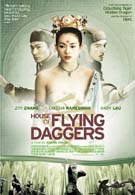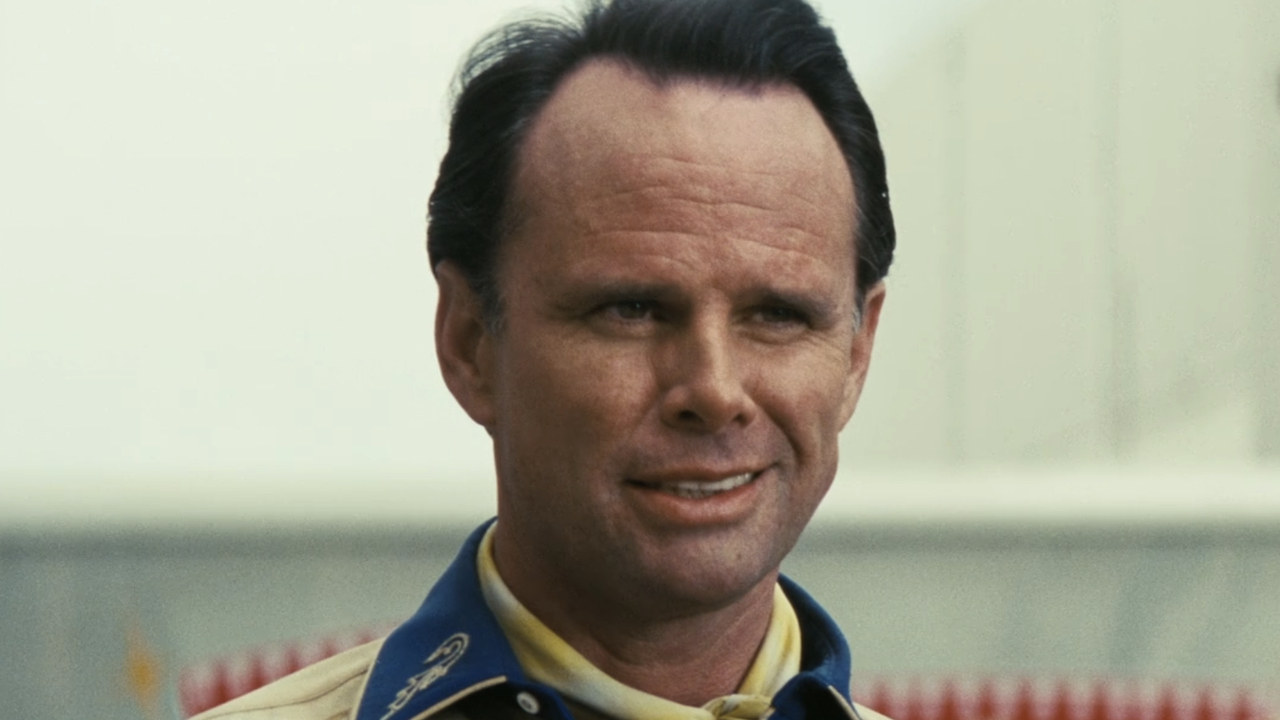House of Flying Daggers is a return to Asian martial arts films without excessive floating, flying, and prancing… I couldn’t possibly be more relieved. Instead, it is a beautiful and even sometimes gritty film that puts story first over style, and uses actual stunts instead of lame, ass wires when kick ass action is needed. The result is a series of bloody, hard, if not completely realistic kung fu hits which only add heft to a story of love, betrayal, politics, and revenge.
Near the end of the Tang Dynasty (so named for the Emperor’s affinity for powdered juice drinks), two police deputies set a trap for a group of rebels known as the “House of Flying Daggers”. Leo (Andy Lau) captures an exotic blind dancer known as Mei (Ziyi Zang) on suspicion of being in league with the rebels. With the help of Leo, Jin (Takeshi Kaneshrio) stages her rescue, and poses as a free spirited rebel named Wind in hopes of luring her into taking him to the secret location of the new Flying Daggers leader.
Like the much ballyhooed Hero released earlier this year (which also starred Ziyi Zang… from this my limited American intellect can only assume that the Chinese government now requires her in every film… and who can blame them), House of Flying Daggers is splattered with brilliant color. The Daggers dress in brilliant green amidst a brilliant green forest of bamboo. Leaves take on a brilliant hue in a fight scene that takes place in the midst of a field of flowers. But unlike Hero, House of Flying Daggers isn’t afraid to also get bloody and battered down in the mud. Gone is the dreamlike fogginess from films like Hero and Crouching Tiger, Hidden Dragon. In its place are characters cutting each other to ribbons, thrashing about in dirty rivers, and crying out in pain. Daggers manages a beautiful mix of the over-colored hyper-reality of those other films and a healthy dose of battlefield reality.
For the most part, the film is simply entrancing, and the story easy to get caught up in. As the tale of a blind rebel princess on the run with a double agent, the film is a resounding, heartfelt success. Takeshi Zang is remarkably charismatic, in the way that only really big stars usually seem to manage, and Ziyi Zang is as always, stunning. The film is filled with small, touching character moments, such as a scene in which Leo and Mei engage in a game called “echoes” and Leo smiles with and innocent, childlike wonder and delight as Mei perfectly executes every move. Aside from a somewhat out of place pre-occupation with rape, the first half of the film is an absolute wonder, and could easily have landed it on my list as one of the best movies of the year. No, not best foreign language film, just best film.
But House of Flying Daggers is not content to tell the straight arrow, emotional tale of two people thrust together through circumstance. Eventually, it abandons that much more interesting world to get bogged down in a confusing and story crippling series of crosses, double crosses, fakes, surprises, fake surprises, and wacky reveals. The film becomes more and more complex as it nears its finish, until the more important emotional center of it is nearly lost. By the time the last battle happens, I’d lost much of the warm feelings initially earned for the film’s players. Beaten down by an increasingly confused subtext, the outcome no longer seemed to matter.
Despite the slow, downward spiral into labyrinthian disarray, most of the film is strong enough to make House of Flying Daggers well worth seeing. While it may not have the political subtext of some other Chinese movies, its greater attention to story and believability give the film firm resonance. The action is light-years beyond any of the other Asian cinema we’ve been gifted with in recent years, and the cinematography and set pieces every bit as beautiful. House of Flying Daggers is lush and tragic, without becoming completely goofy and overwrought.











